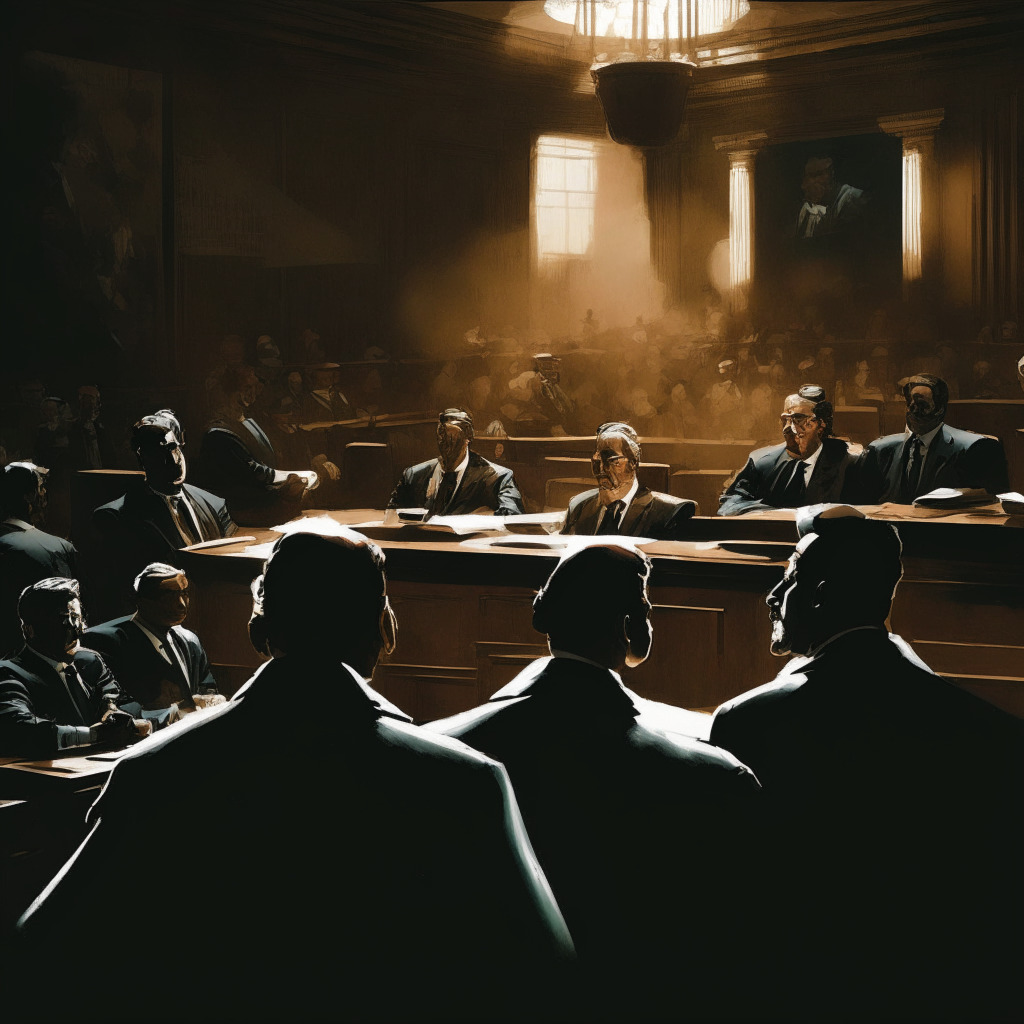A high-stakes legal struggle has grasped the crypto community’s attention as former FTX CEO, Sam “SBF” Bankman-Fried, encounters accusations of fraud, conspiracy, and financial misconduct in a federal court in New York. The proceedings cast a shadow on one of the industry’s most recognized personalities, raising questions about regulations and the maturation of the crypto market.
For crypto enthusiasts, Bankman-Fried represents an entrepreneurial spirit that has helped the industry gain credibility and market cap. However, this trial throws this image into flux as the Department of Justice (DOJ) is determined to showcase him as a perpetrator exploiting the transparency and trust crucial to crypto platforms. This depiction contrasts with Bankman-Fried’s defense – two attorneys who also defended Ghislaine Maxwell – painting him as a young entrepreneur who stumbled amid a company’s swift growth.
The case’s backbone consists of documentation pointing towards Bankman-Fried’s decision to alter FTX’s code, favoring Alameda Research with exemptions from liquidation engine sanctions and a pass to maintain a negative balance infinitely. It questions the impartiality and honesty standard expected of exchange platforms, shedding light on conflicts of interest that could potentially dismember crypto’s trust. Such exposure could cause reshuffling of investor confidence and raise regulatory flags. As customer trust dwindles, the pressure for the implementation of rigorous regulatory infrastructure intensifies.
Subsequently, the defense suggests that Alameda Research’s privileges, owing to its market-making role, were legitimate. Is it, then, a normative part of business practices in a nascent industry or a flagrantly unethical act violating the spirit of fair play? How far can the boundaries of market roles extend, and where do they overlap with the challenges of ethical grey areas?
Bankman-Fried’s defense strategizes an aggressive-blame game, undermining the credibility of state witnesses and attributing some blame to Binance’s CEO Changpeng Zhao. One cannot deny the impeccable timing of placing Zhao in the frame, given Binance’s recent regulatory concerns.
It’s crucial to note that prosecutors bear the task of proving the alleged crimes. However, Bankman-Fried’s defense still betrays a lack of compelling alternative theories, countering the prosecutor’s narrative despite an exorbitant fee. Nonetheless, the appeal process might swing hope back into Bankman-Fried’s corner, should legal lapses or misconduct have muddied the original trial.
This case stands as a symbolic transition period for crypto, implying regulatory scrutiny, and reestablishing norms and ethics. With Bankman-Fried’s legacy hanging by a thread, the trial’s importance extends beyond justice being served to one individual; it might be a harbinger of wider effects across the crypto space in the near future.
Source: Cointelegraph




